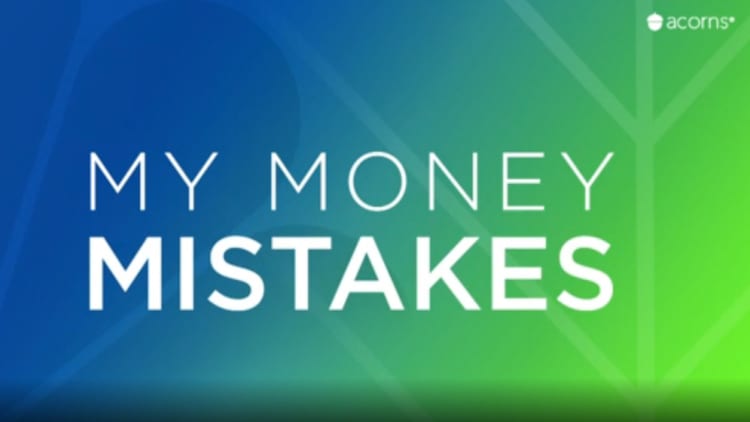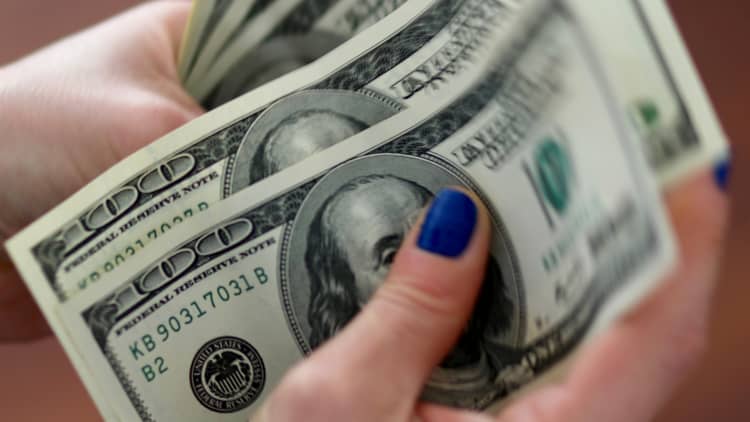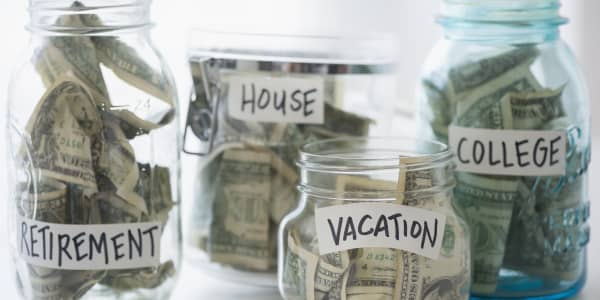
Mistakes happen, especially when it comes to money.
Even our most trusted sources for financial information and advice have their own regrets.
Here, CNBC Financial Advisor Council members share their greatest money mishaps, and what they do differently now. In every case, their younger selves made tradeoffs that sacrificed their long-term financial well-being.
Maybe if we can learn from them, we won't fall into the same trap.
Money mistake: 'I didn't negotiate my first salary'
"When I first started in financial planning, I got an offer for $40,000 with a 401(k) and a 4% match and I thought I had won the lottery," said Sophia Bera Daigle, CEO and founder of Gen Y Planning, an Austin, Texas-based financial planning firm for millennials. That elation led to a mistake: "I didn't negotiate my first salary."
However, the next year, the economy skidded to a halt, annual raises were sidelined and her employer rescinded the 401(k) match, she said. "For my first five years in financial planning, I made the same amount of money."
Although wages were particularly stagnant during the Great Recession, salaries are in the spotlight once again as inflation weighs on most workers' financial standing.

And still, more than half of workers don't negotiate when given a job offer, CareerBuilder found.
Yet negotiating works. According to Fidelity, 85% of Americans — and 87% of professionals ages 25 to 35 — who countered on salary, benefits or both got at least some of what they asked for.
Confidence is key, said Bera Daigle, who is also a certified financial planner and a member of CNBC's Advisor Council. Know your worth and what you want. It may be a higher paycheck or increased opportunities for advancement, flexibility or vacation time.
"If you get a hard 'no,' ask what it would take for a salary increase to be on the table in six months," she advised. "That's really helpful too."
Money mistake: Leasing 'too much' car
"My biggest money mistake was back when I was working at Smith Barney as an early financial advisor," said Winnie Sun, co-founder and managing director of Sun Group Wealth Partners, based in Irvine, California. "My colleagues at the time really encouraged me to get a new luxury vehicle and said that given what we do, a lease would be a good option."
So, Sun, a member of the CNBC Financial Advisor Council, splurged on her dream car. "I signed a three-year contract and pulled off the lot with a shiny white convertible Mercedes Benz.
"Was it beautiful? Yes," she said. "Was it the right way to spend my money? Absolutely not."
These days, financing a new or used car is even more expensive, new research shows.
Amid rising interest rates and elevated auto prices, the share of new car buyers with a monthly payment of more than $1,000 jumped to a record high, according to Edmunds. Now, more consumers face monthly payments that they likely cannot afford, according to Ivan Drury, Edmunds' director of insights.
Sun said her hefty lease payments came at the expense of other investments. "I could have done so much more with the money and invested it for the future."
In fact, most experts advise spending no more than 20% of your take-home pay on a car, including payments, insurance and fuel or electricity.
I never bought another new car for myself again.Winnie Sunmanaging director of Sun Group Wealth Partners
Used vehicles could be a better deal. A certified pre-owned vehicle, usually one coming off a lease, often includes warranty coverage, which greatly reduces the worry that can also come with buying a used car.
"I never bought another new car for myself again," Sun said. "And the money I save has gone into my kids' college savings accounts and have grown nicely and is surely more valuable than a leased car."
Money mistake: Going all in on tech
"I came into investing during the 'go-go' 90's, which were great years for the market," said CFP Carolyn McClanahan, founder of Life Planning Partners in Jacksonville, Florida. "We were invested in tech stocks and everything risky."
These same companies largely took the fall when the dot-com bubble burst in 2000.
"We lost a lot of money when the market crashed," said McClanahan, who also is a member of CNBC's Advisor Council.
"If we had known about diversification and using a low-cost passive approach, we would have been much better off."
When it comes to investing, most experts recommend a well-diversified portfolio of stocks and bonds or a diversified fund, like an S&P 500 Index fund, to help weather the ups and downs rather than chasing a hot stock or sector.
Investors should also check back in regularly to review their investment allocation and make sure it is still working to their advantage.
Money mistake: Unloading inherited stock
"My wife had inherited shares of Phillip Morris stock from her father," said Lee Baker, a CFP based in Atlanta.
But since smoking had contributed to his death, the couple wrestled with owning shares of the tobacco giant. At the same time, "there was discussion in Congress about a sin tax, so I figured it was a good time to sell."
The legislation failed to get off the ground, however, and Philip Morris continued to thrive.
"For me, the biggest lesson is to be careful about making investment decisions based on what politicians say they want to do," said Baker, who is the founder, owner and president of Apex Financial Services and a member of CNBC's Advisor Council.
Still, some investors find it important to consider backing companies that reflect their values or lifestyle.
"Today, when we talk to clients about inherited stock, we still take the time to find out if there are any emotions attached to the stock, either positive or negative," he said. "Once we have a handle on the emotional side of the equation, we are in a better position to discuss the stock from an investment perspective."
For some, that may mean shifting a portfolio away from owning tobacco, even though stocks like Philip Morris have been proven winners within the vice group.
Money mistake: Not considering long-term care
Most families don't think about long-term care until there is a health crisis.
"I waited until we were in our mid-50s," said Louis Barajas, CEO of International Private Wealth Advisors in Irvine, California. He is also a CFP and member of CNBC's Advisor Council.
"It was procrastination on our part or being too busy," said Barajas. In the meantime, his wife, Angie, was diagnosed with colon cancer. "It will be a lot more expensive now, it might be unaffordable," he said.
There are insurance options to help offset the costs — from traditional long-term care insurance to hybrid policies that combine life insurance and long-term care coverage. But, in general, the younger you are, the cheaper your insurance premiums.
Insurance premiums rise by an average of 8% to 10% for each year you postpone buying coverage, according to Policygenius, which is why some experts advise addressing long-term care as soon as you can.
"You need to start thinking with one eye on the present and one eye on the future," Barajas said.





